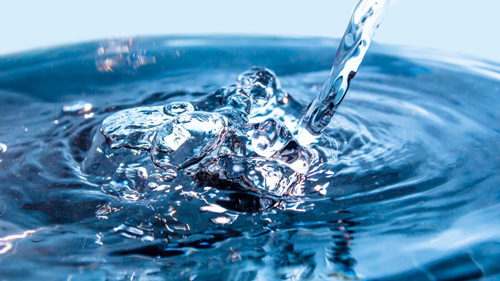Water is a fundamental resource for life, and ensuring its safety is paramount for both human health and environmental sustainability.
The process of water treatment plays a crucial role in purifying water and making it safe for consumption. Behind this vital process lies a combination of scientific principles and advanced technologies that work together to deliver clean and healthy water to our homes and communities.
In this article, we will explore the science behind water treatment and the cutting-edge technologies that make it possible.
Understanding Water Treatment
Water treatment involves a series of physical, chemical, and biological processes that remove contaminants from raw water, such as bacteria, viruses, chemicals, sediments, and other impurities.
The goal is to produce clean, clear, and odorless water that meets rigorous safety standards.
The process typically starts with the collection of raw water from various sources, such as rivers, lakes, or underground aquifers. This water may contain a wide range of impurities that need to be removed.
Let’s delve into the science behind some key water treatment technologies that contribute to the purification process.
1. Coagulation and Flocculation
Coagulation and flocculation are the initial stages of water treatment. Coagulants, such as aluminum sulfate or ferric chloride, are added to the raw water.
These chemicals neutralize the electrical charges of suspended particles, causing them to come together and form larger particles called flocs. The flocs then settle or can be easily removed by filtration, assisting in the removal of impurities such as dirt, algae, and some bacteria.
2. Filtration
Filtration is a vital step in water treatment that effectively removes remaining suspended particles, fine sediments, and microorganisms.
The water passes through various filtration media, such as sand, gravel, and activated carbon, which trap and remove impurities.
Advanced filtration techniques, including membrane filtration and ultrafiltration, are capable of removing even smaller particles and microorganisms, ensuring higher water quality.

3. Disinfection
Disinfection is a crucial process that eliminates harmful microorganisms, including bacteria, viruses, and parasites, to prevent waterborne diseases.
Common disinfection methods include chlorination, ultraviolet (UV) irradiation, and ozonation. Chlorine, in the form of chlorine gas or hypochlorite, is often used due to its effectiveness in killing a broad spectrum of microorganisms.
UV irradiation and ozonation provide alternative disinfection methods, ensuring the destruction of pathogens without the addition of chemicals.
4. Advanced Technologies
In addition to the traditional water treatment processes, advanced technologies have emerged to address specific contaminants and enhance the overall efficiency of water treatment. These technologies include:
- Reverse Osmosis (RO): RO is a highly effective membrane filtration process that can remove dissolved salts, minerals, heavy metals, and other contaminants from water. It is commonly used for desalination and the production of highly purified water.
- Activated Carbon Filtration: Activated carbon filters are highly porous and have a large surface area that can adsorb organic compounds, chemicals, and some dissolved gases, improving the taste and odor of water.
- Ion Exchange: Ion exchange involves the exchange of ions in water with ions of a similar charge present in the resin bed. This process is often used to remove ions such as calcium, magnesium, and certain heavy metals from water.
- Advanced Oxidation Processes: Advanced oxidation processes, such as the use of hydrogen peroxide or ozone combined with UV light, can effectively degrade persistent organic compounds and emerging contaminants, providing an additional layer of protection.
Ensuring Water Safety for All
The science behind water treatment is continually evolving as researchers and engineers explore innovative solutions to address emerging challenges. By combining scientific knowledge with advanced technologies, we can achieve higher standards of water safety and quality.
Water treatment plants, equipped with state-of-the-art technologies, play a crucial role in ensuring that the water we drink meets stringent safety regulations. Additionally, individuals can contribute to water safety by practicing water conservation, regular maintenance of water infrastructure, and responsible disposal of hazardous substances.
The science behind water treatment is a testament to human ingenuity and the commitment to safeguarding public health and the environment. As we continue to face new water-related challenges, ongoing research and technological advancements will pave the way for more efficient and sustainable water treatment solutions.
Remember, every time you turn on your faucet and enjoy a glass of clean, safe water, you can appreciate the science and technology that make it all possible
Contact Atlantic Blue Water Services For Professional Water Treatment
At Atlantic Blue Water Services, we are dedicated to providing comprehensive water treatment solutions for your home. Whether you are experiencing issues with a single tap or require servicing for your entire property’s water supply, our team of specialists is here to assist you. We understand the importance of your property and your time, which is why we prioritize fast and reliable service.
What sets us apart is our commitment to using safe and effective water treatment methods. Unlike relying on harsh industrial-grade chemicals, we employ the latest technology and equipment to address even the most challenging contamination sources.
With our on-site teams, we ensure that your water treatment needs are met with the utmost care and precision. If you require water treatment services, inspections, maintenance, or find yourself in an emergency situation, our specialists are just a phone call away.
Reach out to us at 410-751-9200 to benefit from our expertise and experience.
We are ready to assist you in ensuring the safety and quality of your water supply!
